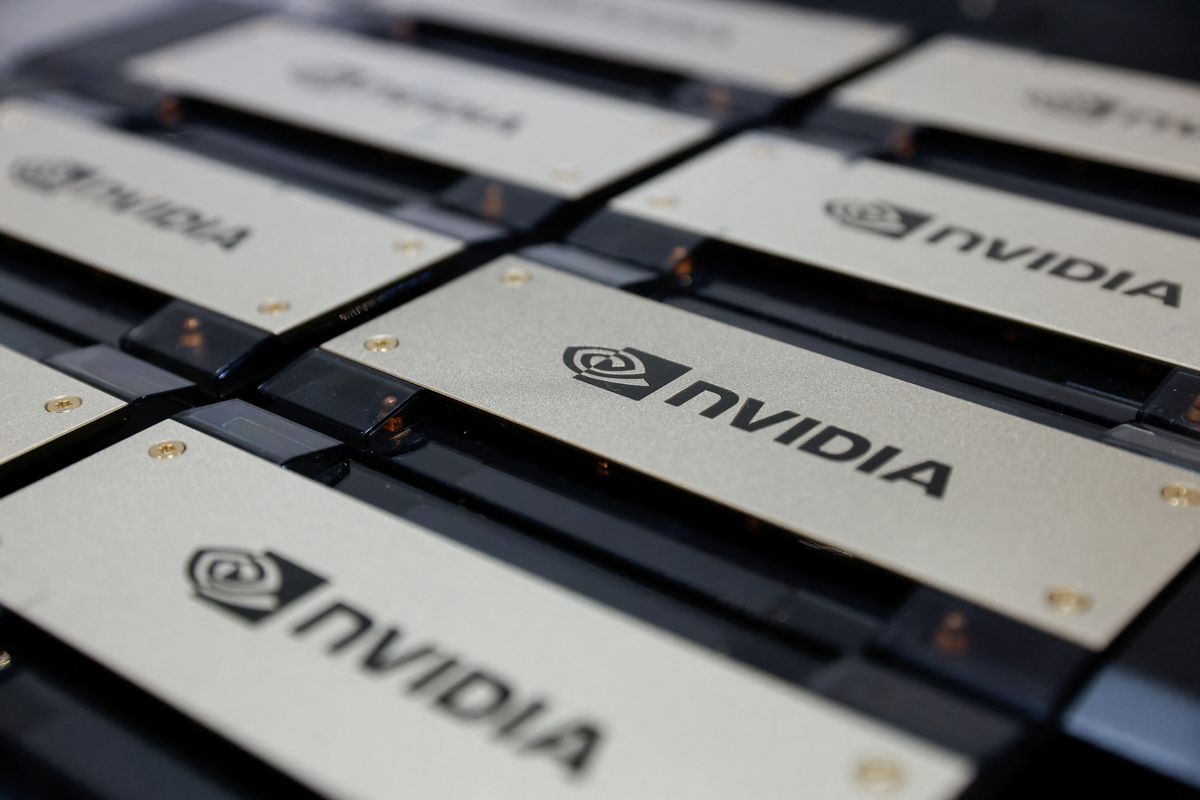The US announces new export restrictions on advanced chips, impacting Nvidia
The US Biden administration has just announced new export restrictions aimed at cutting-edge chips and tools.

A few minutes every morning is all you need.
Stay up to date on the world's Headlines and Human Stories. It's fun, it's factual, it's fluff-free.
The backstory: Tensions have been brewing between China and the US, particularly on the tech front. For example, the US put restrictions on selling advanced chip technology to Chinese companies last year. This move created a roadblock for China's chip industry and ramped up tech competition between the two nations. The Netherlands and Japan also joined in, stopping the export of certain chipmaking equipment to China around March.
This trade clash also hit Nvidia, a major US chip company, because China was a big chunk of its business, accounting for up to 25% of its revenue. The chipmaker couldn't sell its A100 and H100 graphics units to China. To work around this, Nvidia created two special chips, the A800 and the H800, designed for China.
More recently: In July, China announced export restrictions on two crucial metals, germanium and gallium, which are used in high-tech applications like semiconductors and electronics. China is a big player in this supply chain, producing 80% of the world's gallium and 60% of the germanium, according to the Critical Raw Materials Alliance (CRMA).
The development: The US Biden administration has just announced new export restrictions aimed at cutting-edge chips and tools. All the restrictions are mainly over concerns that this advanced tech could be used by China’s military. These new curbs will go into effect in 30 days.
The new rules seem to affect mostly Nvidia, including those chips it made specifically for the Chinese market. The company said that these curbs will affect two of its high-end artificial intelligence (AI) chips, the A800 and H800, developed precisely to work around the previous export limitations.
Adding to the mix, the Semiconductor Industry Association, which represents 99% of the US semiconductor industry by revenue, isn't thrilled with these new measures. It’s voicing concerns that these restrictions might be casting too wide a net and potentially harming the US semiconductor business without significant security gains. It also fears this could lead international customers to seek other options. The Chinese embassy has also made it clear China is against these measures, saying they "violate the principles of the market economy and fair competition."
Key comments:
“Today’s updated rules will increase effectiveness of our controls and further shut off pathways to evade our restrictions. These controls maintain our clear focus on military applications and confront the threats to our national security posed by the PRC government’s military-civil fusion strategy,” said US Commerce Secretary Gina Raimondo.
“The US needs to stop politicizing and weaponizing trade and tech issues and stop destabilizing global industrial and supply chains,” spokesperson Mao Ning told a press briefing. “We will closely follow the developments and firmly safeguard our rights and interests.”
“Overly broad, unilateral controls risk harming the U.S. semiconductor ecosystem without advancing national security as they encourage overseas customers to look elsewhere,” said the Semiconductor Industry Association in a statement regarding the new export rules. “Accordingly, we urge the administration to strengthen coordination with allies to ensure a level playing field for all companies.”
"We seek a healthy economic relationship with China: one that fosters growth and innovation in both countries," said US Treasury Secretary Janet Yellen in April.




Comments ()